Exhibit Guide Home
Exhibits
Introduction
Founding Generation
Founding Documents
You
Be the Judge
Defining Freedom
The Struggle Continues
Faces
of Freedom
Marketplace of Ideas
Censorship: What Is It?
Musical Hit List
Draw
the Line
Resources
Museum Map
Glossary
|

Mary Beth Tinker, 13.
Bridget Mergens, 18.
What do these two names have in common? These
young women fought for their First Amendment
rights before the United States Supreme Court.
The First Amendment and Bill of Rights were
written in a way that has left it up to the
people and courts to figure out the boundaries
of our rights. People of all ages and
backgrounds are involved in these court cases,
which look at whether certain rights should be
expanded or restricted. Sometimes there are so
many questions and different decisions by lower
courts on similar situations, that they reach
the Supreme Court for interpretation.
Although judges are supposed to be objective in
their judicial decisions, just like us, their
experiences and views are influenced by societal
values and attitudes of that time period. An
older Supreme Court case from decades ago may be
decided differently if it were before the court
today. Courts occasionally overturn their
previous decisions. Court rulings and judges’
written opinions have a huge impact on how the
people and other branches of government
interpret our rights.
Find out how Mary Beth Tinker, Bridget Mergens
and others tested the boundaries of the First
Amendment before the Supreme Court, and how
their actions helped shape history.
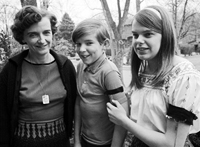 |
Speech
Tinker v. Des Moines (1969)
Mary Beth
Tinker, 13, was
opposed to the
Vietnam War. To
express her
views she and
other students
decided they
would wear black
armbands with
the peace sign
to protest the
war. They wore
the armbands to
school and were
suspended. Find
out how Mary
Beth Tinker's
case still
affects students
today.
Learn more |
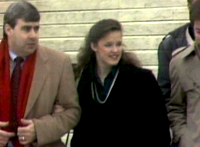 |
Religion
Westside School District v. Mergens
(1990)
Bridget Mergens, 18, wanted to form a Christian club at her high school in Omaha, Nebraska. The principal denied the request, so Mergens and other students appealed to the school board. The school board upheld the principal’s decision, but this wasn’t the end of the story.
Learn more
|
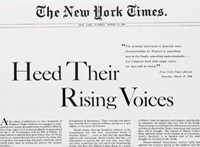 |
Press
New York
Times v.
Sullivan
(1964)
On March 29, 1960, the New York Times printed a full-page advertisement alleging that the recent arrest of Dr. Martin Luther King, Jr., in Alabama was intended to hamper the civil rights struggle. The advertisement did not mention anyone by name but contained several factual errors. Find out how this case affects freedom of press and the Internet today.
Learn more
|
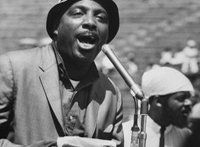 |
Assembly
Gregory v.
Chicago
(1969)
On August 2, 1965 a group of demonstrators—including comedian Dick Gregory—marched to the home of Chicago Mayor Richard Daley to protest segregation of the city’s public schools. A large crowd of spectators began threatening the demonstrators and throwing rocks and eggs. Find out what happened next.
Learn more
|
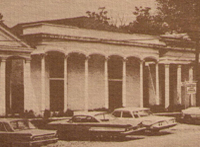 |
Petition
Brown v. Louisiana (1966)
On Saturday, March 7, 1964 five African-American men entered a segregated library in Clinton, Louisiana. The library was part of the Audubon Regional Library system, which did not allow blacks into any of its library branches. A library assistant asked the men to leave. They sat down and remained. The assistant called the sheriff. Find out what happened next.
Learn more
|
<< Previous
Section
Next section >>
|
|
![]()
![]()